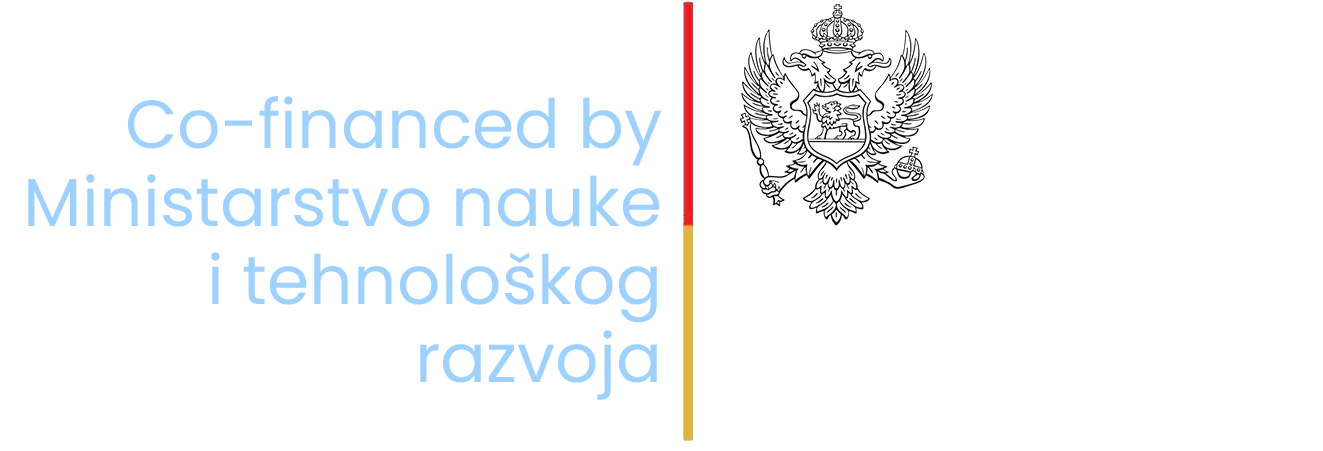Digital transformation – road toward modern society

Digital transformation is more important today than ever, both for the modernization of the public sector and for the standardization of the private sector, which must follow global trends. It is important to always keep in mind that digital transformation, as complicated as it sounds, is not quantum physics but a vital need of all participants in society in order to improve both the quality of business and the quality of life of citizens. Digital globalization, which is a consequence of the continuous development of information technologies, affects the reorganization of society and the global economy, the transformation and emergence of new professions, and the creation of a faster and more efficient system. For this reason, digital transformation must be continuous and imperative. It is obvious that a lot has been done in Montenegro to establish a framework for electronic business (legal, strategic, and institutional), and to implement key e-Government projects (electronic fiscalization, eID…), but our system still does not reflect this and the question arises – why this dysfunctionality? The process of digital transformation must be accompanied by the building of digital skills. There is a large digital gap both among the younger population and among the entire population when it comes to the use of ICT technologies, therefore it is necessary to start from education and introduce the learning of ICT and digital skills within all levels of the education system, in order to have staff, not only with the mastery of digital skills but ready for a job market that is crying out for individuals of this profile. According to the compass presented by the European Union through the vision and path of digital transformation until 2030, four key points have been recognized – the development of skills, the existence of safe and sustainable infrastructure, the digital transformation of business, i.e. the economic sector as a carrier of economic development and the digital transformation of public administration with the goal of 100% of public services being digitized. The mentioned segments cannot be viewed independently, because together they form a complex whole, aimed at establishing a value system that will create a society in which citizens will be in focus, respecting basic rights such as freedom of choice, inclusivity, guaranteeing security, all with the aim of increasing participation and sustainability. In the past two decades, a large number of laws and by-laws concerning the regulation of the field of digital transformation have been passed in Montenegro, which is mostly harmonized with the legislation of the European Union. However, although the principles of action are clear and normatively defined in theory, the application in practice is different. For numerous permits and paperwork, you still need to physically go to the counter, most often in the famous “Limenka”. The time spent waiting for the necessary documents is usually measured in hours, and if we multiply all that by the number of individuals and legal entities that go through this process every day – we get an irretrievably lost unlimited amount of a key resource – time, and therefore money. Public administrations of advanced, technologically developed countries are increasingly opting for functioning models that are aimed at citizens and the economy, to optimize processes, and simplify and harmonize the provision of services with the real needs and expectations of citizens and the economic sector. Everyday communication between citizens and the public administration is inevitable, it requires time that we sometimes don’t have, and it often entails additional costs. Digitization of services and their personalization makes it easier for citizens to access services, making services more efficient, which indirectly increases the effectiveness and efficiency of public administration at all levels. Digitization of public administration achieves a higher level of accessibility to services, provides an opportunity for additional education of officials who will support citizens, ensures a high level of public service standards, increases the percentage of trust in institutions, and no less importantly – increases transparency and improves efficiency institutional reforms. The most advanced ways of providing public services today are those based on the principle of the “One Stop Shop” system. The model implies that more services are provided through a single electronic portal or a single administrative center – which ensures the satisfaction of citizens, with faster and more efficient closure of bureaucratic processes. The fact is that the digitization process cannot include all members of society and that there will always be a certain number of citizens, but also the type of services that must be implemented directly. However, what can be done in the aforementioned situations is to foresee the aforementioned during the optimization of services, that is, to enable that in such situations we always have trained officers available who can help in the realization of requests. What has been implemented in Montenegro so far and why are the processes stalling? We mentioned that in the previous period the normative framework concerning the application of digitization in business, i.e. the digital transformation of the business to start services from anywhere and optimize the business processes of all participants, both the public administration that provides services and citizens who have to provide public administration service. To exercise rights within several services – such as, for example, exercising rights to certain social benefits, a set of documents issued by another public administration institution is required. Such situations are not only demanding for service users, but also an additional burden for employees, and they also represent a risk when it comes to data protection. All of the above occurs as a result of the lack of interoperability, which in our country, although normatively recognized, is the burden of the citizens because in practice – it is almost not used at all. The first thing that should be abolished in the existing sequence of steps is the submission of documents issued by the public administration – to relieve citizens and speed up the process of processing requests as much as possible. Citizens would recognize such a procedure as the state’s


